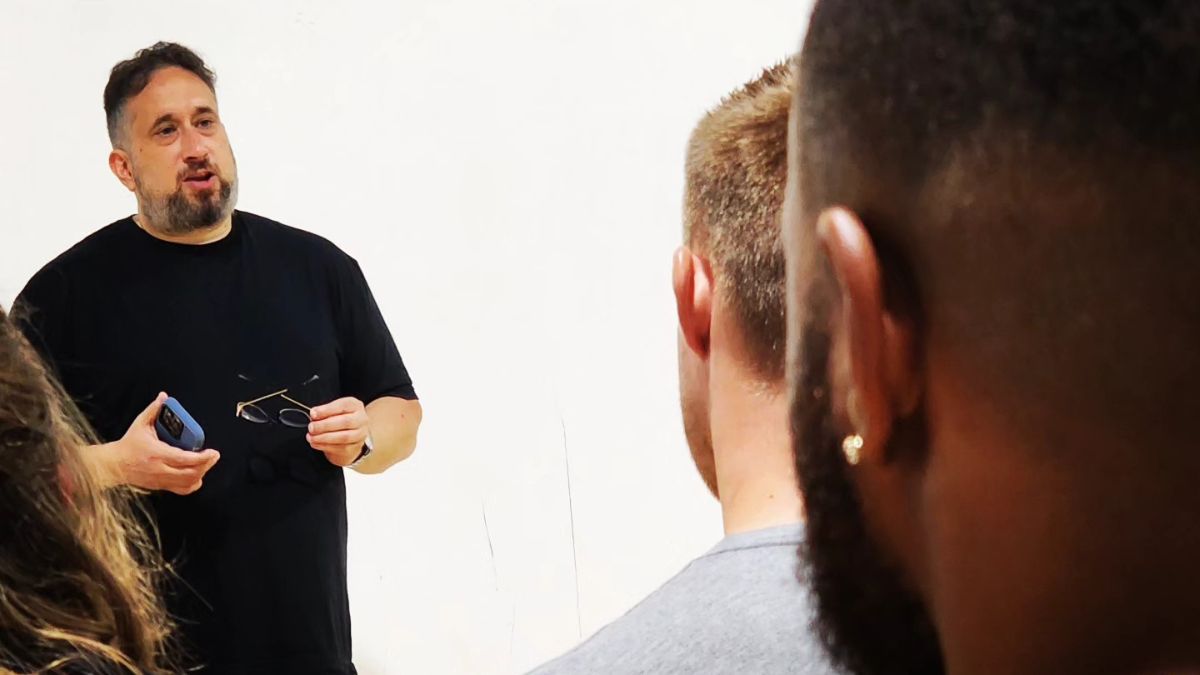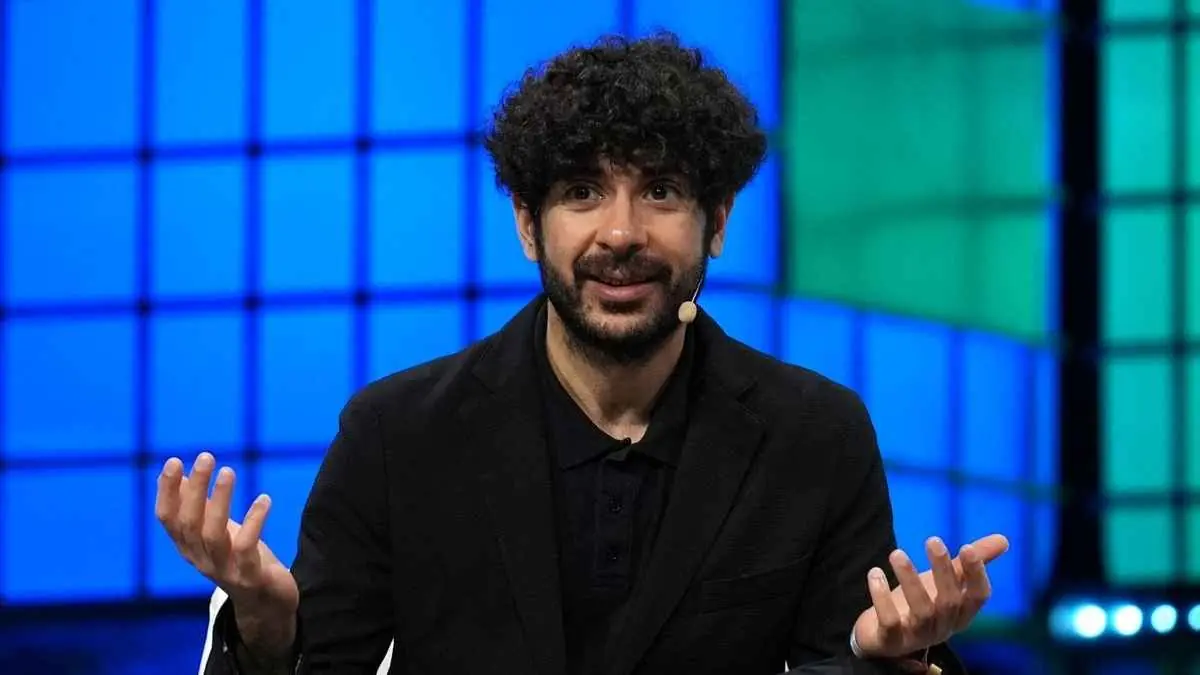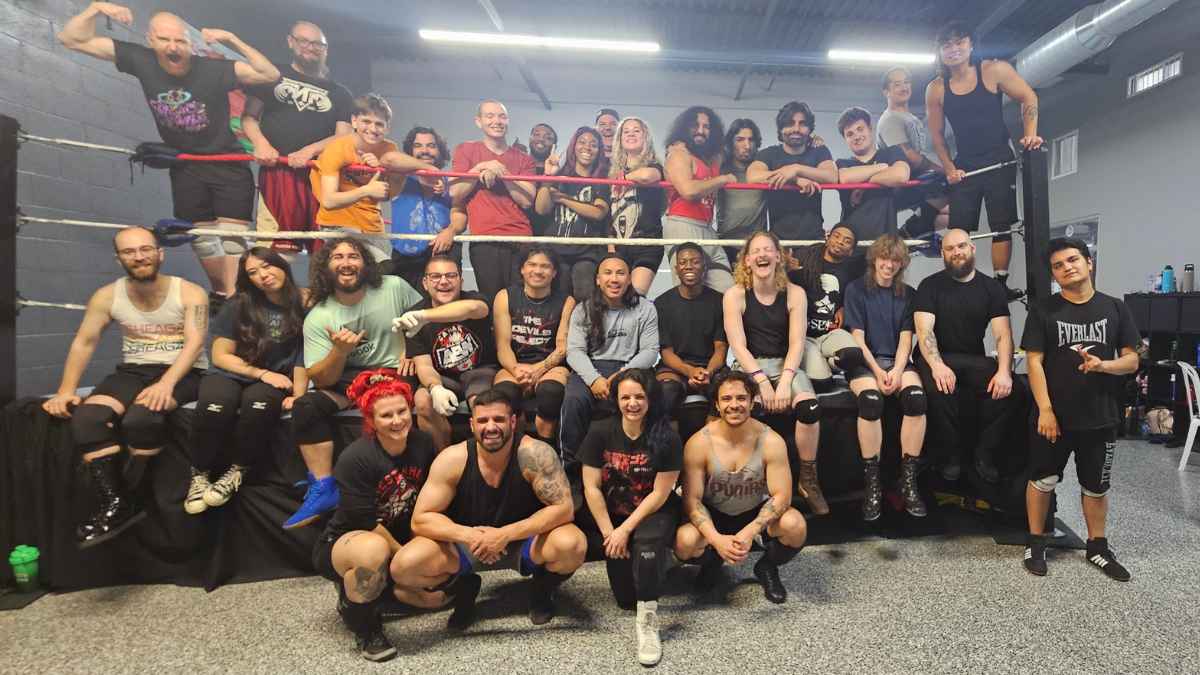Gabe Sapolsky was gone, stating in September 2020 that he was leaving the wrestling industry, that the COVID-19 pandemic changed his viewpoint. “The downtime due to COVID-19 has made me realize how much I do not miss the day-to-day aspects of running an independent promotion. I no longer have the drive to continue the constant grind of running an independent wrestling promotion,” he stated at the time.
Things are different now, and Sapolsky is most definitely back, though, like with all his previous roles, isn’t always front and center in an attention-grabbing manner.
Sapolsky was the man behind the booking decisions in Ring of Honor, DragonGate USA and EVOLVE, which made him a sought-after person when it comes to getting the mindset of modern-day professional wrestling. Hence his current gig as a guest speaker at wrestling schools.
SlamWrestling.net had a chance to catch up with Sapolsky as he conducted a seminar in Salt Lake City, for a local promotion, Devotion Championship Wrestling. We spent some time going over the past, specifically the things he learned as he worked alongside Paul Heyman in ECW.
“The two biggest things, which I’ve repeated many times over the years because they should be repeated and everyone in the wrestling business should live by,” Sapolsky started, “is know your strengths and weaknesses and showcase your strengths and hide your weaknesses.”
“I do feel a lot of people need to be honest with themselves about what their weaknesses are, and they need to learn how to emphasize the things that are not their weaknesses,” he added. “Everyone’s good at something and [they should] learn how to take those qualities that are positive and learn how to blow those up and make them as big as possible.
“And then the other major lesson, which I applied to every promotion that I booked,” he concluded, “is to zig when everybody else zags and you have to find something new to bring to the marketplace.”
He used Ring of Honor as a prime example of that “zig-zag” Zen mantra. “Everyone was doing imitation ECW because ECW had gone out of business about a year earlier or so, and people missed it. And everyone was trying to redo ECW, and we did the exact opposite with Ring of Honor,” Sapolsky explained. “Now, a lot of the principles that Ring of Honor are based on [came from] what I learned in ECW under Heyman, but we just took them in an opposite direction. So, for instance, no cheating, no outside interference, that whole ‘Code of Honor’ that we did immediately made a statement that this isn’t ECW.”
The Code of Honor handshake has its origin in another sport. “I stole that from little league soccer, to be honest,” he chuckled. “Because you’d always shake hands after the games back then. And I was like, ‘Let’s use it in wrestling,’ and it immediately made things different, too. So [those are] just examples of zigging when everybody else is zagging, and as a wrestler, you can do the same thing.”
Sapolsky was instrumental in putting together some great matches during the heyday of ROH. Many moments stand out for him. “I mean, Cage of Death with the CZW/Ring of Honor feud was obviously something I’m really proud of. Being able to work with CM Punk on the Summer of Punk was a huge thing and coming right down to the trilogy of Samoa Joe [versus Punk], where they took that and made it into something really special. And then it was a dream come true to have [Kenta] Kobashi come in and wrestle Samoa Joe.” (If you have not had the opportunity to see the match firsthand, below is a clip from the Ring of Honor archives displaying the aforementioned match. It starts at the beginning and goes until the 27:30 mark.)
Sapolsky shared the behind-the-scenes detail on how the bout came about.
“Samoa Joe, we had as a mainstay on our roster, and I read on the internet that he [Kobashi] was coming in to do a seminar, I think, at Harley Race’s place in Missouri. He was coming in to do something there, and I thought, ‘Hey, maybe we can book him,'” Sapolsky remembered. “We fortunately had some connections to Harley Race. I might have been the one to set it up. I don’t remember exactly. But I called Mr. Race, and was like, ‘Can we book Kenta Kobashi?’ I don’t think he was really aware of who we were or what we were doing or anything. But he was aware of the fact that we were willing to spend money to do so.
“He was all ears and he went to the office and got it approved,” he added. “And then, I was able to work with the legendary Harley Race. I got to make it happen, and then from there it just came down to who’s the best possible person to have one singles match with Kenta Kobashi who’s the best possible opponent for him that we had on the roster at the time, and it was obviously Samoa Joe.”
At one point, it almost became a Kobashi versus Bryan Danielson matchup. “Bryan Danielson was under consideration, but he wasn’t in for that weekend for us. I think he was overseas or something,” said Sapolsky. “But Samoa Joe was just a no-brainer, because he was a heavyweight, which was a big thing and we needed a heavyweight and someone that could have that kind of match with Kobashi, and Samoa Joe was by far the best choice.”
Sapolsky also mentioned what took place behind the curtain to get that match to the squared circle. “It did take some politics involved, and it did almost fall apart because I asked Mr. Race if we could announce it and he said, ‘Yeah,’ and we announced it,” he recalled. “And then he either forgot that he gave the okay, or else the Japan office [Pro Wrestling NOAH] said something to him and he called back and was like, ‘Why did you guys announce that?’ And I was like, ‘We got the okay to announce it.’ And he was like, ‘No, you didn’t.’ And then you can’t really argue [with Harley Race] at that point.
“I was like, ‘Oh, my God,’ and I was driving over a bridge and going into Long Island in New York going ‘What happened?’ as the conversation’s happening,” Sapolsky said. “I remember distinctly I did a lot of ass-kissing and the match was back on. So, there was some politics [and] it almost didn’t happen. It came very close to being canceled.”
As the booker, Sapolsky didn’t have much to do with the match itself. “There was really no skill in booking the match. I just said, ‘Hey, Samoa Joe, go do whatever.’ And Samoa Joe was a genius. There’s absolutely no skill on my part doing that; the skill was groveling to Harley Race to make sure the match happens.”

Sapolsky even shared his experiences working on EVOLVE. “We did some stuff that hit, we did some stuff that didn’t, you know? The main thing was it got the attention of the right people, due to the tremendous talent roster that we had,” Sapolsky explained. “That helped me further my career and helped the career of many wrestlers. So, I’m really proud of the pipeline that EVOLVE became to NXT and WWE.”
Sapolsky even used this point in describing his aforementioned mantra during his time in EVOLVE. “The era in the ring I’m most proud of was when everyone was doing super long shows, and again, zigging where everybody else was zagging, we went and did five- or six-match shows where every match was a main event,” he said. “Because, at that point, we had the talent roster to where we don’t need any filler on the shows. We can put on five main events now and have that tight two-two and a half hour show and have it be different that way. The talent that we had was absolutely tremendous and the effort they gave was off the charts. So, with that combination, [I was] super proud of those shows.”
That leads to the question of what advice can Sapolsky offer to someone overcoming hurdles in professional wrestling and how they learn from his example. “Professionalism is what comes to mind first, and how to become a valuable part of a team, rather than trying to be the team,” he explained. “And the importance of interaction and building relationships with other people in a professional way and being able to read a room and learn where you fit into that room and learn how to be the most productive that you can be in that room.
“That I would say is the biggest learning curve, because with Ring of Honor, it was always a collaboration with the talent,” he concluded. “Through the years, that’s changed, especially as I’ve gotten around the most professional environments in this business and being able to learn how to become a part of that team, I think is very important.”
TOP PHOTO: Gabe Sapolsky delivers a seminar at The Academy: School of Professional Wrestling, run by Ken Anderson, in Saint Paul, Minnesota, in June 2023. Facebook photo
RELATED LINK



